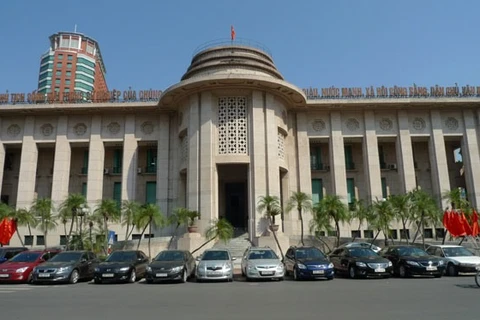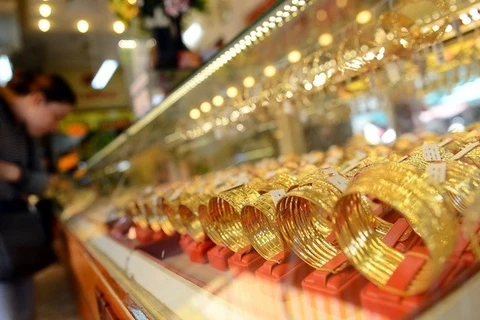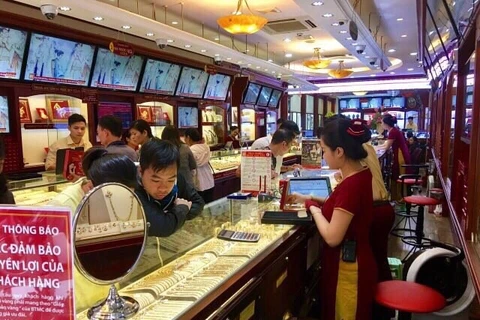Hanoi (VNA) - Converting idle gold held by Vietnamese people into money and other assets may help provide more funding for socio-economic development and business operation, according to the State Bank of Vietnam (SBV).
The SBV said in a recent report to the National Assembly that the conversion of idle gold into other assets may help reduce the dependence of people on gold and lessen the amount of gold held by people in the country.
Turning idle gold into other assets will change the habit and demand of people regarding gold ownership, making gold less attractive and preventing the development of a gold-dominant economy, according to the SBV.
It is important for people to voluntarily sell gold and switch to other assets so that they can avoid shocks, thus the country may be able to prevent a gold fever among its people.
It would take a long time to complete the conversion, and solutions for the issue must be carried out comprehensively, carefully and synchronously, the SBV added.
The SBV has been studying and working with other sectors and ministries to develop the plan on preventing a goldenised economy, as well as planning how to turn gold into resources for the country’s socio-economic development by 2020. In late 2017, the SBV submitted the draft plan to the Prime Minister.
It is estimated that there are currently some 500 tonnes of idle gold held by people, worth billions of USD, which would be very useful if converted into money and other assets to invest in the economy.
According to the SBV, commercial banks in 2001-2008 were eligible to raise capital and make loans in gold. The policy did help financial institutions raise a large amount of capital for the socio-economic development with a stable gold price level.
However, as the world’s economy turned negative and unpredictable in 2008-2011, gold prices suffered from massive volatility, increasing as much as 300 percent from 2008’s average price level. As a result, gold traded in Vietnam also moved with high volatility, causing losses for both commercial banks and borrowers.
“As gold was used to raise capital and make loans, the volatility caused a big burden for the Vietnamese economy, raising demand to capture and deposit gold at financial institutions to earn high interests,” the SBV said.
“That worsened the condition of the market, increased the chance of gold dependency in the economy, caused volatility for the gold trading market and dampened the Government’s efforts to administrate its monetary policies during that period,” the SBV added.
In 2011-2013 period, the SBV implemented a number of regulations to stop gold from being deposited and lent. Banks were only allowed to keep gold for customers and customers had to pay the banks a fee for gold keeping.
According to the SBV, as gold was forbidden from being borrowed and deposited, the demand for gold declined and more people have switched to making cash deposits, thus increasing VND-dominated accounts in the system.
Since 2014, gold has become much less attractive and the demand-supply leverage on the market has been quite balanced. Gold trading has been on the downtrend and companies have mostly purchased gold from individual clients.-VNA
VNA

























